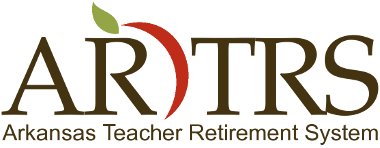What are the advantages of T-DROP Cash Balance Account (CBA)?
The CBA allows retiring T-DROP participants to leave all or a portion of the T-DROP balance in an interest bearing cash account with ATRS.
Some advantages of this account are:
- The CBA account is tax deferred until withdrawals are made
- The account will never lose the principal amount initially deposited, unlike private investments that may experience large stock fluctuations
- CBA Participants may receive distributions at age 55 without penalty versus age 59 ½ that applies to funds rolled over to other retirement administrators
How do I request a withdrawal or rollover from my CBA?
The CBA participant must submit a Cash Balance Account Distribution Request form to request a withdrawal or rollover distribution to ATRS. Please see the Cash Balance Account page for additional information about withdrawals.
How can a rollover affect my taxes?
You will be taxed on a payment from the System if you do not roll it over. If you are under age 59½ and do not do a rollover, you will also have to pay a 10% additional income tax on early distributions (unless an exception applies). However, if you do a rollover, you will not have to pay tax until you receive payments later and the 10% additional income tax will not apply if those payments are made after you are age 59½ (or if an exception applies).
If I don’t do a rollover, will I have to pay the 10% additional income tax on early distributions?
If you are under age 59½, you will have to pay the 10% additional income tax on early distributions for any payment from the System (including amounts withheld for income tax) that you do not roll over, unless one of the exceptions listed below applies. This tax is in addition to the regular income tax on the payment not rolled over.
The 10% additional income tax does not apply to the following payments from the System:
- Payments made after you separate from service if you will be at least age 55 in the year of the separation
- Payments that start after you separate from service if paid at least annually in equal or close to equal amounts over your life or life expectancy (or the lives or joint life expectancy of you and your beneficiary)
- Payments from a governmental defined benefit pension plan made after you separate from service if you are a public safety employee and you are at least age 50 in the year of the separation
- Payments made due to disability
- Payments after your death
- Payments made directly to the government to satisfy a federal tax levy
- Payments made under a qualified domestic relations order (QDRO)
- Payments up to the amount of your deductible medical expenses
- Certain payments made while you are on active duty if you were a member of a reserve component called to duty after September 11, 2001 for more than 179 days
Once I have requested a withdrawal or rollover, how long will it take before I receive the requested funds?
A participant should allow 7-10 business days (from postmark date to receipt of withdrawal) to receive the requested withdrawal or rollover.
Once I've established a CBA, may I make additional deposits from another administrator, personal bank account, etc.?
No. Because the CBA is part of the ATRS defined benefit plan, additional deposits cannot be made.
May I get a loan from my CBA and pay it back?
No, any CBA withdrawal is permanent. The CBA is not subject to a member loan of any type.
May I replace funds already withdrawn from my CBA?
No, once money is withdrawn, it cannot be returned to the CBA plan.
Once I've established my CBA may I decide later to annuitize all or part of the balance?
Once a CBA is established, it cannot be annuitized. However, you many request a recurring monthly distribution from your CBA account by completing the appropriate Cash Balance Account Distribution Request form.
What happens to my CBA if I die?
Any remaining balance in the member's CBA will be paid out to the designated residual beneficiary. If no residue beneficiary is designated, the residue will be paid to the deceased member's estate.
See Beneficiaries for more information regarding naming a residual beneficiary.
